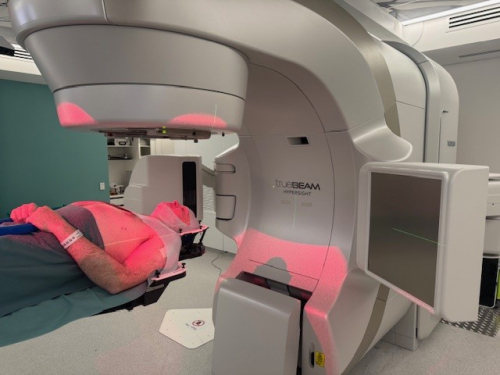Search for answers

Doctors at The Alfred are hoping to provide Bacchus Marsh teenager Connor Manning with long awaited answers to his seizures.
Connor, 16, has spent half his life living with epilepsy.
Diagnosed at just eight-years-old, he experiences uncontrolled seizures which have not been able to be managed with medication.
Connor has experienced seizures on school camps and even on top of the Pinnacle at the Grampians.
His mother Caroline said they can happen at any time and are often severe.
Connor spent last week at Alfred Health’s First Seizure Clinic for a week-long video EEG in a bid to determine where his seizures come from and why he has them.
Alfred Health neurologist and epileptologist Joshua Laing said the test might not only help identify what’s causing Connor’s seizures, but also determine if surgery is an option.
“For Connor it had proved difficult to capture information because his seizures were so infrequent,” Dr Laing said.
“Connor had reached a stage where medication wasn’t really stopping his seizures, but if we’re able to determine where these are being triggered from, surgery might be an option for controlling them or even curing them.”
Fortunately, the team were able to capture, and localise, a number of seizures during Connor’s stay.
“The idea is to trigger a seizure in a safe, supported environment and record it,” Dr Laing said.
“He also had some seizures he and his mother weren’t aware of. Sometimes people can have clinically silent seizures.”
Connor said the intense process was a step in the right direction.
“They took me off my medication and did a lot of different tests,” Connor said.
“They sleep deprived me, so I was only allowed four hours a night and then did some different tests like putting me on an exercise bike, hyperventilation, and a flashing lights test.
“We were lucky enough to trigger a seizure while I was here and hooked up to the systems so now, we wait for answers.”
Connor admits to feeling some nerves before his visit but said everything got easier as the week went on.
“Once you’re sleep deprived and off medication and unable to get out of bed, it becomes a bit normal and you get used to it.
“The first few days were pretty frustrating, but from then on it became easier.
“It was for my own good, so I was happy to put up with it.”


